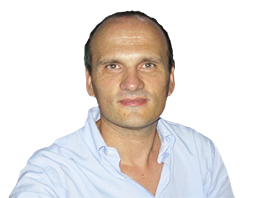The knowledge society has triggered a revolutionary change in all the socio-political dynamics and productive and cultural processes. And this change has made major features of intellectual capital and the production and distribution of knowledge. It’s yet another extraordinary technological revolution – whose origins, by the way, should be looked for in the last decades of the 19th century – generated by the rapid progress in industrialization which had itself already caused a crisis of control. The means of communication have become the absolute protagonists of the processes of knowledge production and diffusion and have thus prepared fertile terrain for the building of a new world-system interconnected in real time. Beyond the much referred to marginality of politics, the liberalization of the markets brings even more to light the absence of any really functioning and operative ‘global institutions’. The global economy is, therefore, undergoing a radical restructuring involving a downsizing of physical capital and the triumph of the offer of services over the sale of goods and exchange of property. Access has become the new measure of social relations. The age of globalised radical modernity, reflexive modernization, and total communication, therefore presents itself as the time of indeterminacy and abandonment of hierarchy and order. It’s a present Era that’s forever continuous, almost stretched, and that’s asking new questions of the order of the day; political, social, and economic questions which, covering wider themes than those of previous epochs, are rendering urgent the need for a re-positioning, even a reinvention of politics. It’s a sphere of discourse that needs to reconquer its decisional spaces. It has been downsized too much, even humiliated in its role and functions, by the economic domain, the technocracy, Weber’s mechanised petrification and, on a more general level, by the progressive reclusion of life and social experiences in institutions and procedures. The complexity innate in globalization obliges us to reformulate every category of political action, and to broaden our horizons of thought and action. We also need to elaborate a policy that doesn’t confine itself to observing the rules but rather tries to change them, given that most were defined in the context of a strong nation-State. This comprehensive re-thinking of theory and praxis takes places in the context of a radical modernity in which the aspect of ‘reflexiveness’ (Donati, 2011) – here taken to mean self-analysis and acknowledgement of an increase in complexity, the existence of other cultures, and the contingency of the belonging of certain elements to certain cultures (Luhmann, 1992) – further throw into crisis the institutions of control and protection. Simultaneous to the inadequacy of the old conceptual schemes and the increased complexity of the social systems, we note how modern society has managed to equip itself with means of self-description notably superior, from a qualitative point of view, to those of the past.The categories that we have used to interpret industrial society meet some difficulties in attempting to understand radical modernity and the globalization process. Further difficulty is caused by the fact that we have passed from a linear modernization (of tradition) to a reflexive modernization (of an industrial and post-industrial society) characterized by an explosion of the political sphere. In the era of the global market and knowledge society, the social production of capital is running step by step with the social production of risks. The society of individuals, among its many aspects, re-proposes homo faber who, with his typical behaviour, constitutes one of the icons of modernity. He has managed to utilise the whole of reality and, driven by his trust in the all-encompassing range of the means-ends category, has convinced himself that he can find a solution to any problem, uncritically identifying production/fabrication with action. The social actors in this eternal present have by now come to interpret all behaviour in terms of utility and are almost obsessed with the need to produce and, above all, consume material objects, often confusing ‘intelligence’ with ‘ingenuity’ (Arendt, 1958). In this way, risk taken also to mean deviation from the norm, has by now become an innate element of the modern nation-State and Political system, as well as of the social systems. Politics is increasingly being forced to take decisions (the central role of the public sphere) whose repercussions are not only local, in that «Risk communication has become reflexive and thus universal. Refusing to assume risks or demanding their rejection have become dangerous behaviour» (Luhmann, 1991).



